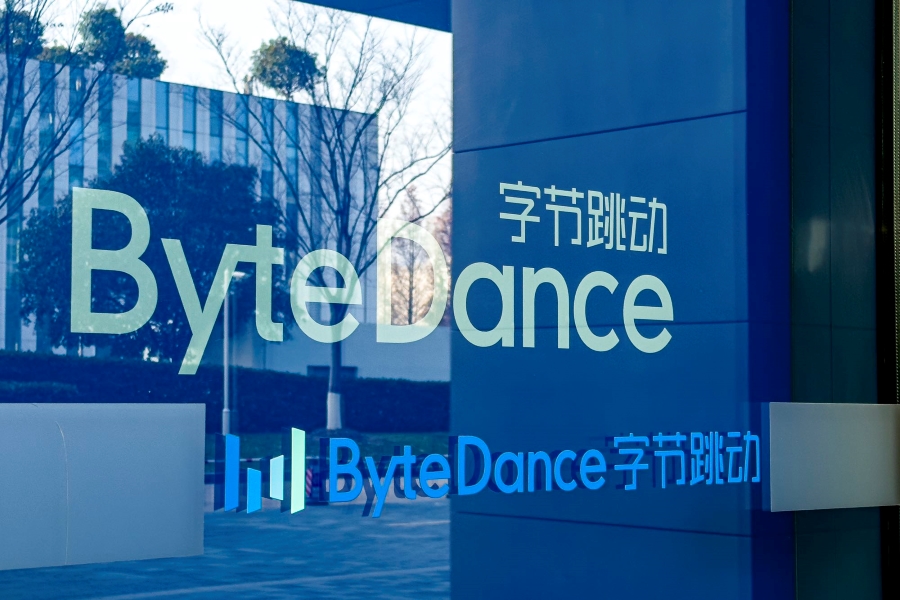TikTok travails take bite out of ByteDance

The short-video platform operator has lost more than half its value, even as it remains more profitable than Tencent and Alibaba
Key Takeaways:
- Douyin and TikTok parent ByteDance posted $25 billion in EBITDA last year, beating Tencent and Alibaba
- The company has lost more than half of its value following repeated attacks on its popular TikTok app in the west
By Tina Yip
Hong Kong’s frigid office leasing market got a recent whiff of spring when ByteDance Ltd., operator of the hugely popular Douyin and TikTok short-video apps, leased a huge space of about 2,000 square meters at International Finance Centre (IFC), one of the city’s most premium properties, for HK$2.4 million ($380,000) per month. Observers are guessing the world’s most valuable tech unicorn made the large commitment as part of preparations for an upcoming IPO in Hong Kong.
But the winds have been blowing hot and cold for the world’s hottest tech company over the past year, taking a huge bite out of its valuation, even as it remains hugely profitable.
The company founded by entrepreneur Zhang Yiming has taken China and the world by storm over the last few years with Douyin and TikTok, which have developed huge followings in China and across the globe. The company, which remains private, outperformed Alibaba (BABA.US; 9988.HK) and Tencent (0700.HK), China’s two most valuable tech companies in terms of EBITDA last year to become the most profitable internet company in China, the Financial Times reported, quoting two investors with access to ByteDance’s annual report.
Although TikTok is still losing money, ByteDance’s earnings before interest, taxes, depreciation and amortization (EBITDA), a measure of operating performance, reached $25 billion last year, soaring 78.5% from $14 billion in 2021. That was enough to beat out Tencent and Alibaba’s figures of $23.9 billion and $22.5 billion last year, respectively.
ByteDance’s revenue reached nearly $85 billion last year, up more than 30% in 2021. Within that total, the big majority $70 billion came from China, with the fast-growing international business accounting for the remaining $15 billion. While its revenue growth slowed sharply from the nearly 80% pace in 2021, the company is already ahead of the vast majority of Chinese tech companies. It is also one of the few that can boast of genuine success in competitive western markets where most of its peers have struggled to make a dent.
New advertiser favorite
ByteDance has benefitted from a number of factors to overtake its older peers, including its relative youth that has caused it to receive less scrutiny from regulators in Beijing.
“After the rounds of governmental regulation over technology companies, both Tencent and Alibaba are under great pressure,” said Kenny Wen, KGI Asia’s head of investment strategy. “For example, Tencent is facing more restrictions on its game business, and Alibaba needs to reform its corporate structure based on official guidance. Douyin has been less affected, which gives its parent company ByteDance a chance to lead its peers in terms of profit level and revenue growth.”
Independent analyst Ivan Chow said that as sharing short videos has become part of mainstream youth culture on social media, advertisers are more willing to promote themselves in Douyin or TikTok. Douyin’s potential for live-streaming e-commerce has also emerged as a new profit engine for ByteDance, Chow added, saying such strong growth momentum will continue for the near-term.
Despite its strong financial performance, ByteDance’s valuation has plummeted by more than half from a high of $460 billion in 2021 to $220 billion when it received an investment from Abu Dhabi-backed artificial intelligence company G42 last month. The figure has dropped continually despite a company plan to buy back some of its shares last year, at which time it was still valued at about $300 billion.
The falling valuation has brought ByteDance’s price-to-sales (P/S) ratio down to a relatively modest 2.6 times, slightly higher than Alibaba’s 2.1 times, but still far behind Tencent’s 5.5 times. That probably reflects the huge negative publicity the company has received amid repeated attacks both at home and abroad, something Alibaba has also tasted but is less familiar for Tencent.
Domestically, ByteDance is facing the same issues as many Chinese tech companies regarding their data security and anti-competitive practices. Outside China, the company’s TikTok is under non-stop pressure, including allegations that it leaked user data in China. A growing list of countries including the U.S., Canada, the U.K., Australia and New Zealand have banned TikTok on government-use devices, citing a threat to national security, and plan to impose more restrictions on the app.
But young Americans seem to worry less about the TikTok security threat. TikTok has more than 100 million users in the U.S., almost a third of the country’s population, according to data analysis firm DataReportal. A survey by U.S. research firm Morning Consult found that 53% of U.S. adults favored a nationwide ban on China-based apps last December. But less than a third of those aged 18 to 25 held such a view, reflecting a general lack of resistance to Chinese apps like TikTok among the younger generation.
Not a spy for China
As the TikTok controversy heated up, the U.S. House of Representatives held a hearing on March 23 to question TikTok’s Singaporean CEO Chew Shou Zi, who said the app is not an agent of any country, and is simply a private enterprise. He said spying allegations were incorrect, and that TikTok has never promoted or removed any content at the request of the Chinese government.
During the hearing, lawmakers grilled Chew about the way data is collected, data security and the impact on children. Chew replied that TikTok’s practices are the same as many American companies, which also often collect data. He reiterated that TikTok has spent $1.5 billion on “Project Texas” to protect U.S. data, which means U.S. data will be stored by U.S. companies on U.S. territory and regulated by the U.S. government.
The scrutiny didn’t appear to scare ByteDance from a March launch in the U.S. and Europe for photo-sharing app Lemon8, which quickly became a hit in the U.S. The app is somewhat akin to Xiaohongshu, a popular Chinese social app, combining functions like those seen in Instagram and Pinterest. It has been listed as one of the most popular apps in the Apple Store since late March, thanks to recommendations by TikTok influencers.
Analyst Chow believes the younger generation is not very vigilant about personal privacy. “Many foreigners I know realize some apps collect data, but are used to it and feel it’s normal. Even if some universities ban TikTok, their students may still use virtual private networks (VPN) to gain access.”
To subscribe to Bamboo Works weekly free newsletter, click here






